Increasing the Focus on Ocean Health
Published on November 1st, 2017
Embarking on his eighth edition of the Volvo Ocean race, Dutch skipper Bouwe Bekking on Team Brunel was not happy with what his team found along the first leg from Spain to Portugal.
“As soon as we arrived in Lisbon we had a diver inspect the appendages. We had rudder vibration for much of the race. We know we hit a lot of objects with the rudder, we hit a turtle for sure. And we just about lost count of the plastic bags and fishing lines.
“We had to do 12 slow and costly back downs during the race. The inspection was to be sure there was no major damage to the keel, because you must lift out to fix that. The keel was okay but both rudders were very knocked about and required repair.
“There is so much rubbish in the water, especially in the Mediterranean. We all need to work hard on ‘keep the oceans clean’ messages. In my first round the world race, I did not have to do a single back down and on this first leg, we did 12 of them. That says something about the health of our oceans.”
These are not new observations, but after the 2015-15 Volvo Ocean Race had the teams actively sharing the plight, this edition has outlined a series of commitments that focus on ocean health. The race is putting sustainability at its heart and has identified three key pillars to its sustainability strategy:
• To minimize the race’s own footprint with a particular focus on reducing, and where possible eliminating, the single-use plastic in the Race Villages – a challenging task but one that will help to change behavior by making it a focus.
• To maximize the race’s impact using its global communications platform to spread awareness and action on Ocean Health and plastic pollution, an educational program to change views, and the creation of Ocean Summits which bring together science, government, sport and business.
• To leave a positive legacy wherever it goes, through many actions including a science program, using the Volvo Ocean 65 racing yachts to capture data while at sea and contribute to our understanding of the oceans in the most remote areas of the planet.
To find out what the Volvo Ocean Race is doing right now to support solutions to the problem of ocean plastic pollution, and to learn what you can do, click here.
Note: Rob Kothe and the Volvo Ocean Race contributed to this report.
Race details – Live content – Scoreboard – Race route – Facebook – YouTube
The second leg of the 2017-18 Volvo Ocean Race starts November 5 and is expected to take three weeks for the seven teams to complete the 7000 nm course from Lisbon, Portugal to Cape Town, South Africa.
2017-18 Edition: Entered Teams – Skippers
• Team AkzoNobel (NED), Simeon Tienpont (NED)
• Dongfeng Race Team (CHN), Charles Caudrelier (FRA)
• MAPFRE (ESP), Xabi Fernández (ESP)
• Vestas 11th Hour Racing (DEN/USA), Charlie Enright (USA)
• Team Sun Hung Kai/Scallywag (HKG), David Witt (AUS)
• Turn the Tide on Plastic (POR), Dee Caffari (GBR)
• Team Brunel (NED), Bouwe Bekking (NED)
Background: Racing the one design Volvo Ocean 65, the 2017-18 Volvo Ocean Race begins in Alicante, Spain on October 22 2017 with the final finish in The Hague, Netherlands on June 30 2018. In total, the 11-leg race will visit 12 cities in six continents: Alicante, Lisbon, Cape Town, Melbourne, Hong Kong, Guangzhou, Auckland, Itajaí, Newport, Cardiff, Gothenburg, and The Hague. A maximum of eight teams will compete.
Source: Volvo Ocean Race



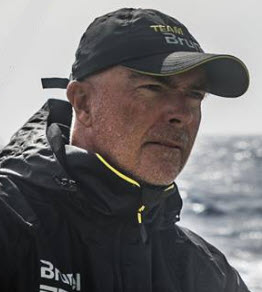

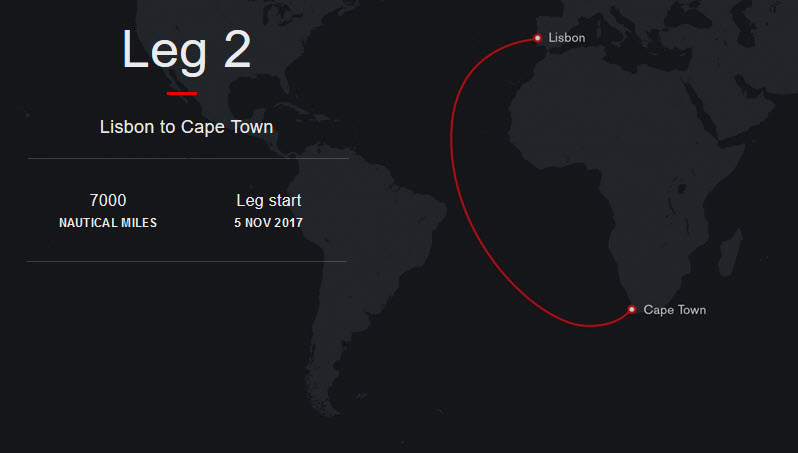
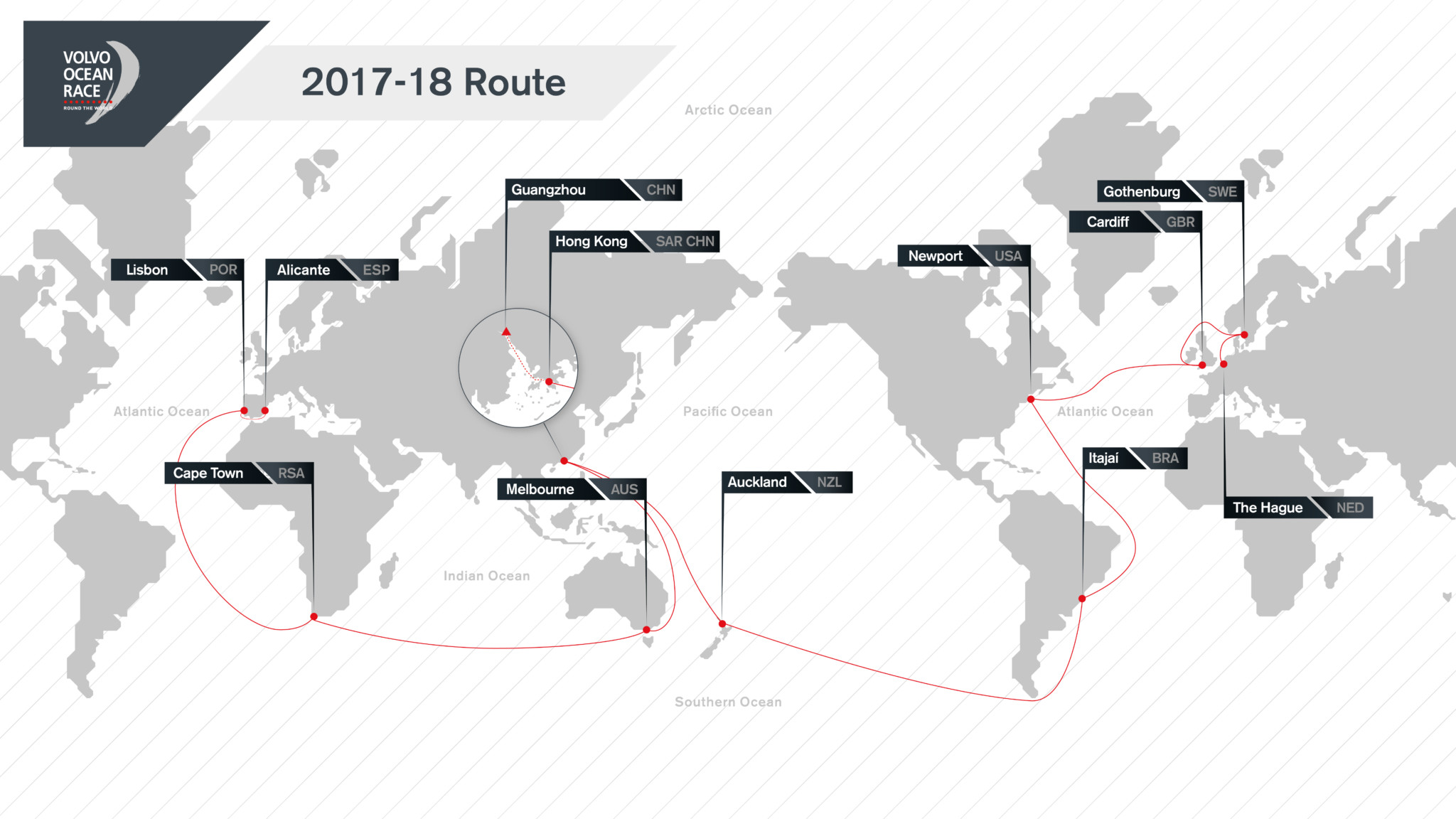

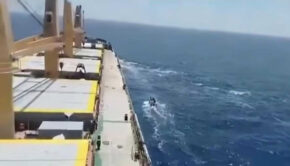
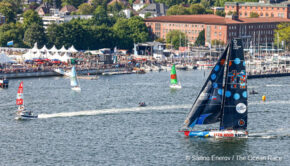
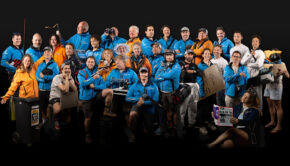
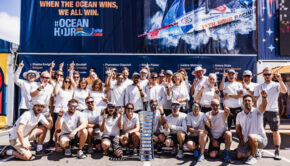
 We’ll keep your information safe.
We’ll keep your information safe.